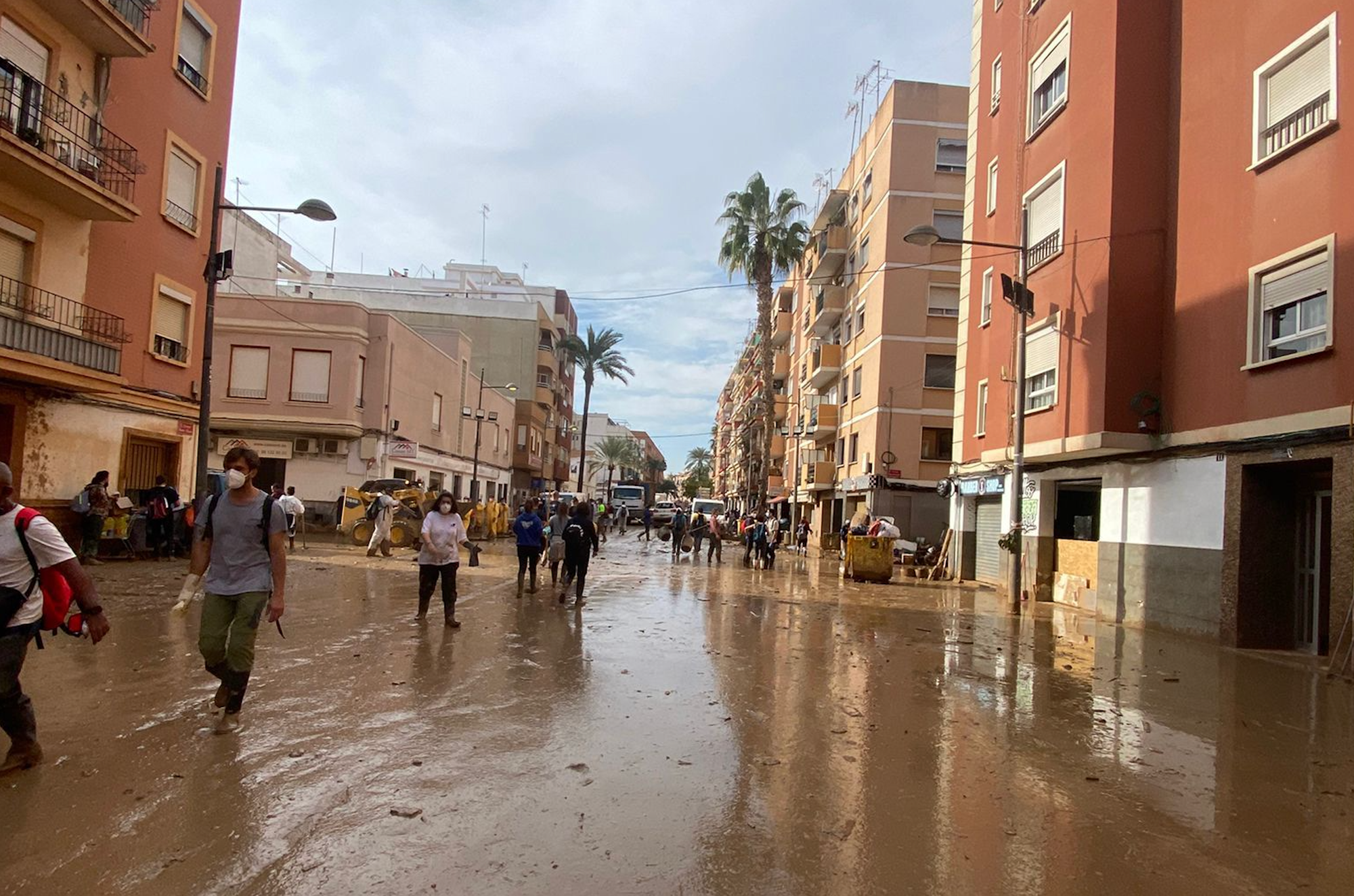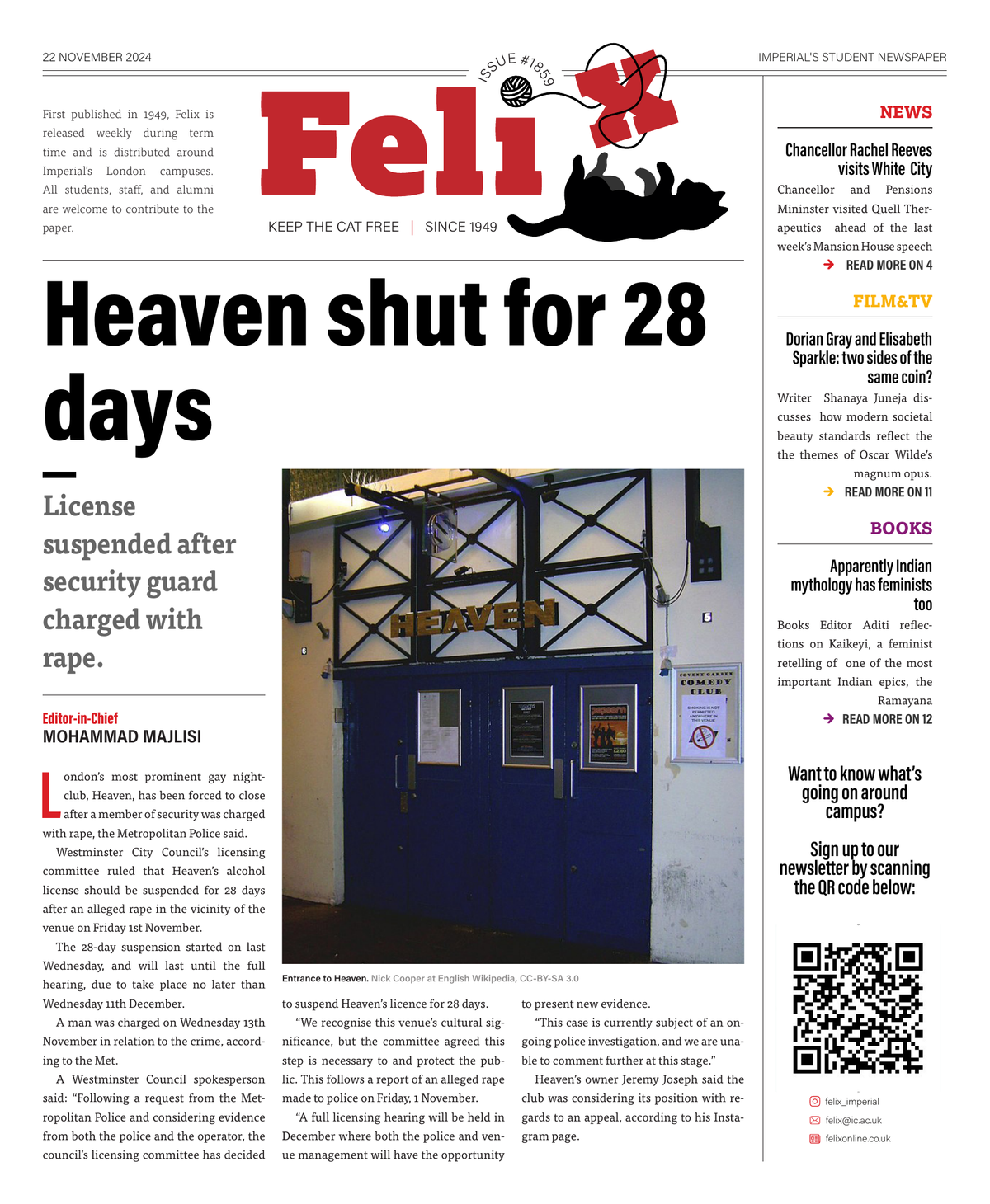Solo el pueblo salva al pueblo
What the recent mass flooding in Valencia reveals about the Spanish authorities, media, and people.
Tuesday October 29th, 2024. The Spanish National Meteorology Agency (AEMET) posts at 7am an alert on their social media for a DANA (Spanish acronym for “high-altitude isolated depression”), which will bring torrential rain, tornadoes and hail. For the last 6 days, only warnings on their website have been posted. The flooding grows intense enough to overflow ravines in the village of Chiva, followed by those in Paiporta, Catarroja and many others – and taking cars, businesses, and most importantly, people, with them. Thousands are now fighting for their lives, water and mud coating everything and everyone they knew and loved – but when will a government-official, region-wide warning be released? The local authorities (Generalitat Valenciana) only issued an alert to citizen’s devices at 8:12pm: this 12-hour gap proved critical to the number of lives lost (216 currently reported) and the speed with which thousands of citizens could have been made aware of the massive natural disaster upon them.
This overwhelming lack of organisation, communication, and efficiency has enraged the Valencian community and the Spanish people as whole. Some blame Salomé Pradas (Head of Valencia’s Emergency Department), who only learnt to deploy this alarm system at 7:30pm on that Tuesday; some blame Carlos Mazón (president of the Generalitat Valenciana) who was seen that morning presiding several unrelated events and having lunch at a hotel; some blame the general government for not deploying emergency services sooner; some blame every single party involved. In my opinion, whoever was at fault did not take the bull by the horns: this situation has revealed how the current political decentralisation in Spain crumbles under an emergency situation, by making it painfully unclear whose duty it is to act and how to do so.
The Spanish media, from newspapers to live broadcasting, is covering how this political situation unfolds in extreme detail and updating the tragic statistics of those dead and missing as the apocalyptic scene in Valencia slowly receives governmental help, weeks after the tragedy. However, the media seems to be commenting embarrassingly little on the other side of the coin, a side of the Spanish nation that some had deemed lost: the strong-willed, united community. While this political catastrophe stems from the natural one, thousands of volunteers from all around Spain come together to face the music (or in this case, the mud) that no authority was initially able to.

“When I got there, hundreds of people were helping: no one tells you what to do, yet everyone is always doing something”. This is how Darío, a volunteer from Madrid, described entering ground zero of Paiporta, one of the towns most affected by the DANA. This nonhierarchic setup by the volunteers involves helping wherever you can with whatever is available, from the physical work of shoving mud and dirt out of the way to delivering warm food to locals. Something that stuck out to Darío, as it is not being portrayed in the news, is that a part of the donations made to Valencia (like food or hygiene and cleaning products) is actually destined to the volunteers: they are not only welcome, but embraced, appreciated and taken care of. As tragic as it is beautiful, sharing donations is the only way the locals can thank the volunteers for their work.
The most striking yet poetic contrast in villages like Paiporta or Catarroja is how amidst this mud-filled tragedy, there is nothing but an inspiring sense of a strong-willed community reigning these areas. “The mere presence of groups of volunteers willing to help is already therapeutic for the locals,” shares Alejandra, who volunteered at Benetússer with a newly created organisation by the Department of Medicine of her university (Autonomous University of Madrid). This massive wave of volunteering has inspired the Spanish people, especially within the younger demographic, to create and join organisations of all types to help in any way possible.
Dedicating oneself to such an extent comes with a mindset shift: “I just got home, and I have everything, and I realise what having nothing really means,” remarks Lucía, who helped in Catarroja. Like her, thousands of Spanish citizens have now seen a reality they never thought possible in their country to this scale. Volunteers were able to transform that shock and sadness into willpower and determination, putting all differences with any local or fellow helper aside – something that the Spanish authorities continuously fail to do.
The most human, purest spirit that drives this volunteering movement, vital given the inept management from the authorities, leaves the majority of citizens as proud of the Spanish people as disappointed in their authorities, popularising the saying “solo el pueblo salva al pueblo,” Spanish for “only the people save the people”.









